There are those who believe that 2023 will be the year of the DAO – Decentralized Autonomous Organizations-. I think so too. The fact is that the potential of decentralized governance, which makes it possible to generate value in a network, distribute that value through tokenization, and mitigate -because the verb “mitigate” is perhaps excessive- the human element, on the basis of smart contracts, is very interesting. In fact, to the question of who will rule the web3 and the Metaverse, the answer is the DAOs. Undoubtedly.
This phenomenon brings for a jurist like me many questions.
We can start with the concept. A DAO is a decentralized organization deployed on a Blockchain, which formalizes and automates the rules of its governance using software. As it is implemented on a Blockchain, the decentralized decision-making process and governance function are encoded directly in the software, through smart contracts.
A few elements are needed to create a DAO, including: a purpose, a voting mechanism, a governance token, creating a community involved with the project and a mechanism to manage the funds (treasury).
Legal personality of DAOs?
One of the most problematic issues is the debate on whether DAOs should be endowed with legal personality. It is true that the degree of insecurity in which the phenomenon operates does not help its potential to develop, and the questions of liability, which we will point out, lead to the search for a regulatory framework.
Thus, there is a proliferation of regulations seeking “legal wrappers” for DAOs, ranging from Limited Liability Companies (LLC) -in the states of Wyoming or Tennessee-; to non-profit LLCs -in the Marshall Islands-; to foundations -Cayman Islands-; or the greater or lesser malleability of established figures -such as trusts or associations- within “DAO friendly” jurisdictions such as Switzerland or Singapore. The debate on the legal personality of DAOs clashes, in part, with their very nature.
But I believe that the debate is necessary, although perhaps the search for these “legal wrappers” should be opened up to other forms, closer, for example, to the social economy, and in particular the cooperative model, or to the possibility of creating a specific type, including elements of artificial intelligence, or finally to think about regulating the phenomenon without the constraints of a legal personality, if, as established in the MICA Regulation, it is possible to create a “legal status that guarantees a level of protection of third party interests equivalent to that provided by legal persons”. Now, how to design that status is the key.
DAO rights and control
The second issue that merits reflection is the idea of token holder “rights” and the notion of DAO control, or lack thereof. It is said that DAOs have the virtuality of eliminating the idea of a unified decision-making center for the sake of true decentralized governance, eliminating the problem of agency theory that occurs in the framework of corporate governance -although this elimination is not entirely real- .
Regarding the first question, the debate is on the characterization of governance tokens, which allow the members of a DAO to participate in the decision-making of the same through a previously designed voting mechanism – not necessarily majority, but for example, close to quadratic voting or futarchy – and on its nature or not of “investment contract” in the terms that the SEC itself analyzed following the case of The DAO or more recently that of American Cryptofed DAO, first DAO incorporated in Wyoming-.
Well, perhaps the nature of these tokens depends on how the “tokenomic” model of the DAO has been designed. As an example, we could think of a design of incentives and rewards based on the greater involvement of the holder, thus creating non-fungible holder positions, close to “soulbounds tokens”, or we could create tokens that are, in effect, very similar to a security. Depending on the specific nature of the governance token, we would fall under MICA regulation or not.
As far as control is concerned, it should be emphasized that it is not the same to argue that there is an absence of a unified center of control as to say that “no one” has control. By definition, the most accurate understanding of the DAOs should lead to the assertion that there is “decentralized control”, but is this true and what does it imply if it is not?
To the first question we must answer that despite the romanticism of the phenomenon, the reality is that DAOs have fairly concentrated control structures, either because the “whales” -whales- hold many tokens- , because of the proxy voting design -the case of ENS DAO is an example- or because many DAOs are actually in a transit towards true decentralization and in the meantime there is a control of the “core team” of the project.
To the second question, if we cannot therefore speak of true decentralized control, it seems legitimate to answer that it is possible to identify a control center, also in the DAOs. This is what is attempted in the field of AML regulations, for example, with the search for the real beneficiaries. However, it seems that this is not what fits in with the real DAO phenomenon, does it not?
Finally, we would like to draw attention, linked to the debate on legal personality and control, to the problems of liability in DAOs. Several cases are showing that the Code is Law aphorism does not seem to be satisfactory for the interests at stake. Cases such as Olympus DAO, or more recently, the CFTC’s complaint against Ooki DAO and the token holders who exercise their vote in it, and the movement in defense of these with very interesting arguments in favor of respecting the decentralized nature of DAOs, are the clear example that there is a lot of legal construction work to be done.
Finally, and in light of what has been analyzed here, it is necessary to think about the opportunity to reflect on enforcement and conflict resolution mechanisms that fit in with this decentralized phenomenon. I believe it is worthwhile.



